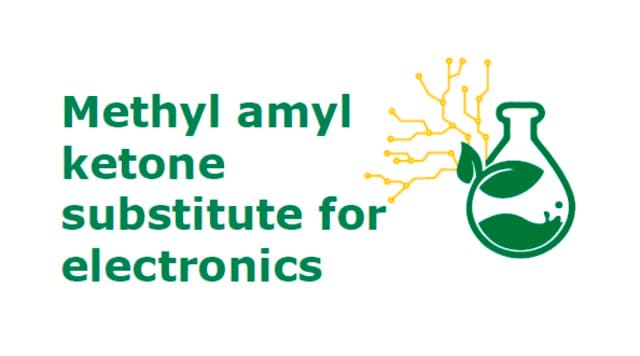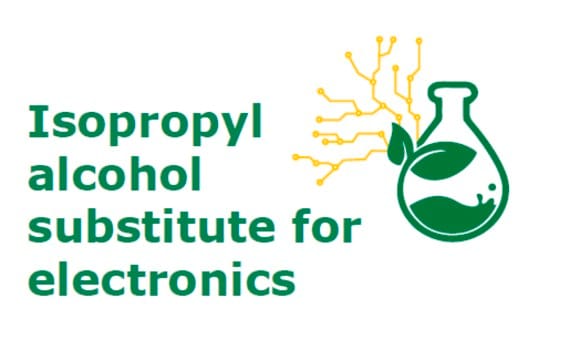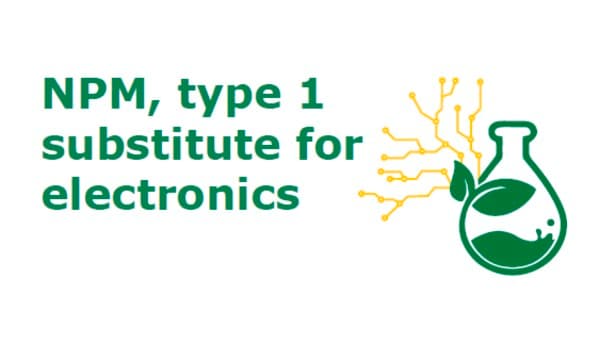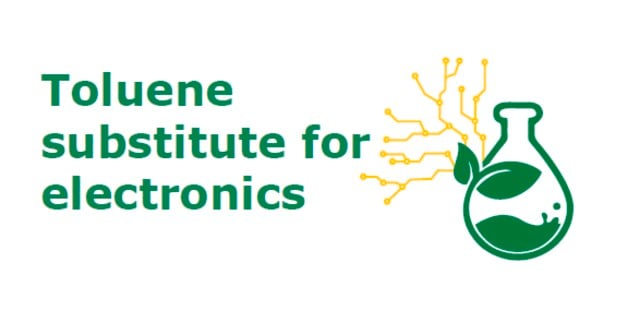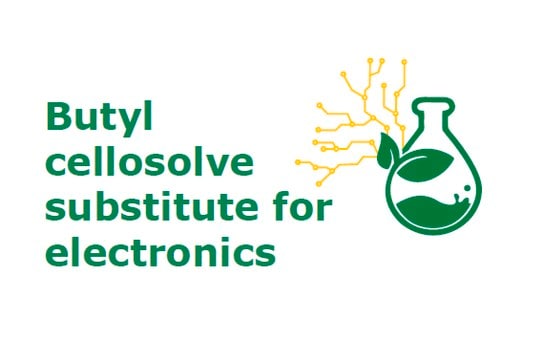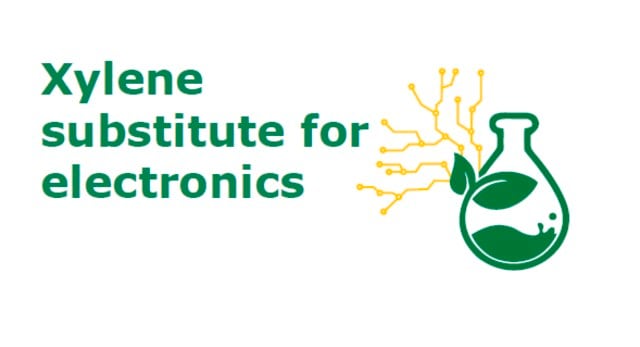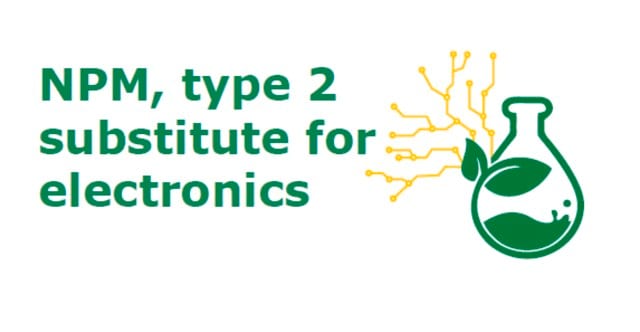929670
ElectroGreen®
Acetone substitute for electronics, bio-sourced
About This Item
Produits recommandés
Qualité
for electronic purposes
Niveau de qualité
Description
Relative Evaporation rate: 2.84
Hansen Solubility Parameters: SPd = 7.7; SPp = 3.4; SPh = 6.1.
Essai
≥99% (GC)
Forme
liquid
Caractéristiques du produit alternatif plus écologique
Design for Energy Efficiency
Use of Renewable Feedstocks
Learn more about the Principles of Green Chemistry.
Impuretés
≤0.09 wt. % Acidity (as lactic acid)
≤0.2% Water (Karl Fischer)
≤1 ppm As, Cr, Cd, Cu, Hg, Mn, Ni, Pb, Zn, trace (each)
Résidus d'évap.
≤0.05%
Couleur
clear
Viscosité
7.8 cP(20 °C)
Densité
0.8620 at 25 °C (specific gravity)
Autre catégorie plus écologique
Vous recherchez des produits similaires ? Visite Guide de comparaison des produits
Catégories apparentées
Description générale
This solvent blend consists of ethyl acetate 50-70%, ethanol 30-50%, Ethyl lactate 10-20%.
Application
Stockage et stabilité
Informations légales
Mention d'avertissement
Danger
Mentions de danger
Conseils de prudence
Classification des risques
Eye Dam. 1 - Flam. Liq. 2 - STOT SE 3
Organes cibles
Central nervous system
Risques supp
Code de la classe de stockage
3 - Flammable liquids
Classe de danger pour l'eau (WGK)
WGK 1
Point d'éclair (°F)
39.2 °F
Point d'éclair (°C)
4 °C
Faites votre choix parmi les versions les plus récentes :
Certificats d'analyse (COA)
Vous ne trouvez pas la bonne version ?
Si vous avez besoin d'une version particulière, vous pouvez rechercher un certificat spécifique par le numéro de lot.
Déjà en possession de ce produit ?
Retrouvez la documentation relative aux produits que vous avez récemment achetés dans la Bibliothèque de documents.
Articles
Carbon-based Sustainable Organic Electronics (SOE) limit the use of critical elements and biodegrade at their end-of-life. This review offers insight on how structural and energy disorder in these materials influence device performance and includes evaluations of various transport models and their limitations.
Carbon-based Sustainable Organic Electronics (SOE) limit the use of critical elements and biodegrade at their end-of-life. This review offers insight on how structural and energy disorder in these materials influence device performance and includes evaluations of various transport models and their limitations.
Carbon-based Sustainable Organic Electronics (SOE) limit the use of critical elements and biodegrade at their end-of-life. This review offers insight on how structural and energy disorder in these materials influence device performance and includes evaluations of various transport models and their limitations.
Carbon-based Sustainable Organic Electronics (SOE) limit the use of critical elements and biodegrade at their end-of-life. This review offers insight on how structural and energy disorder in these materials influence device performance and includes evaluations of various transport models and their limitations.
Notre équipe de scientifiques dispose d'une expérience dans tous les secteurs de la recherche, notamment en sciences de la vie, science des matériaux, synthèse chimique, chromatographie, analyse et dans de nombreux autres domaines..
Contacter notre Service technique